CERTIFIED SUSTAINABLE
As a family-owned winery, sustainability is our priority for many reasons. Fred and Nancy knew they wanted to pass down the winery and vineyards to their children, so they didn’t use pesticides and herbicides to grow their grapes. They treated the land with great respect.
Cline is committed to carrying on their legacy in the vineyards and in business practices. In 2018 our vineyards and winery became Certified California Sustainable and Sonoma County Sustainable.
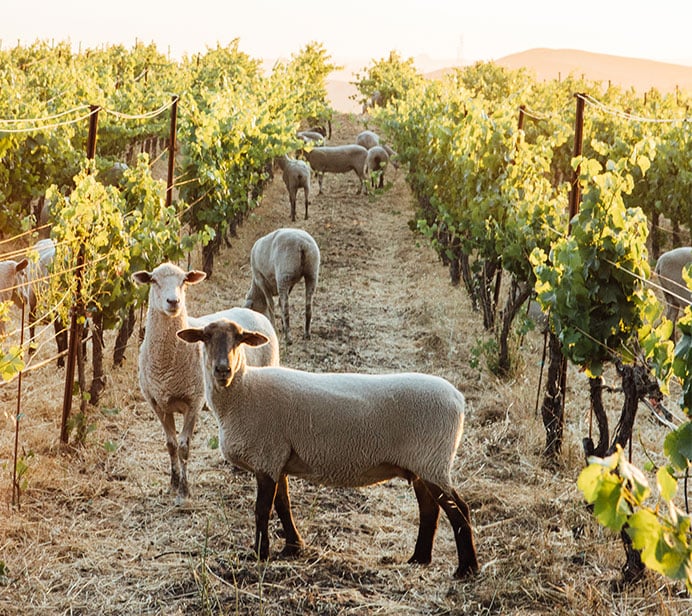
WOOLY WEEDERS
Instead of herbicides, we employ sheep and goats to roam our vineyards, tasked with removing invasive weeds. In spring, they munch on new growth between the vine rows. During summer months, sheep clear the weeds from the vineyard floor while chomping on vine leaves, allowing more sunlight to stream into the canopy and ripen grapes.

PEST CONTROL
We installed owl boxes and raptor perches in the vineyard to keep rodents at bay. The night owl and the day hawk are predators of gophers and mice. We count on birds of prey to help maintain ecological control. We create a habitat for beneficial insects to do the same; cover crops house spiders that feed upon mites and leafhoppers.
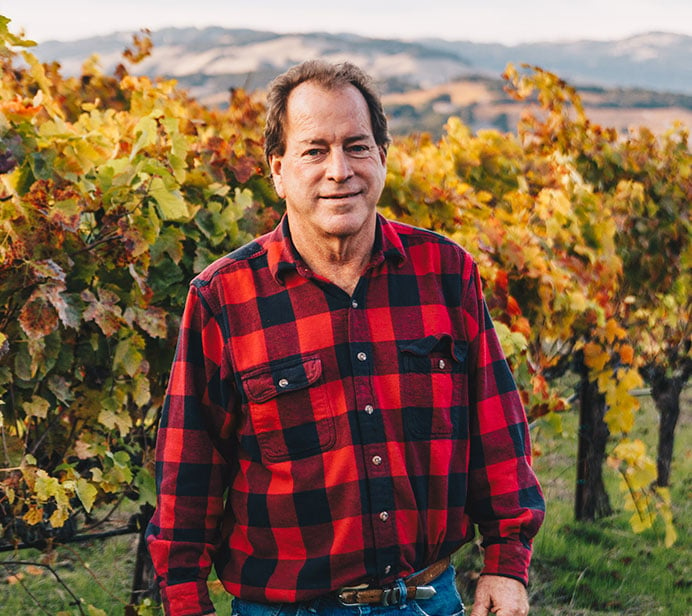
GREEN STRING
Fred Cline is extremely dedicated to sustainable practices. Nothing is more important than how we treat our vines because the wine we make is a direct result of what we put into the ground.
The Green String farming method co-developed by Fred is a system that promotes and enhances biodiversity, biological cycles and soil biological activity. These methods minimize pollution from the air, soil, and water, and optimize the health and productivity of soil, plants, animals and people.
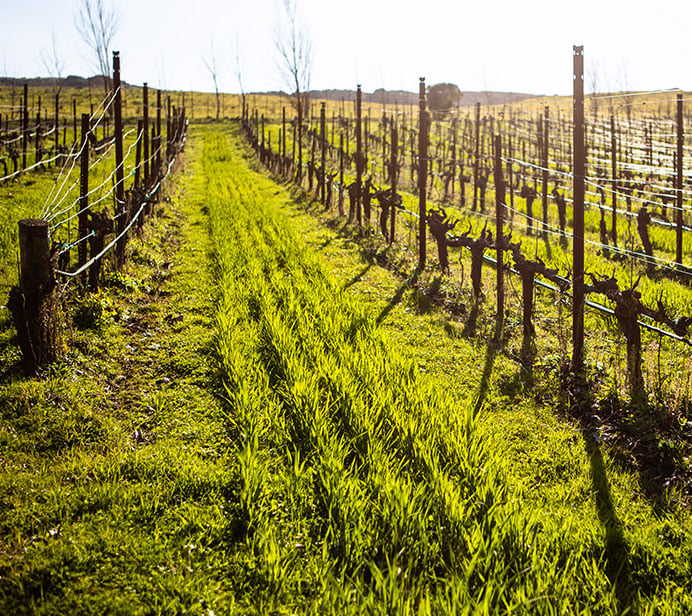
COVER CROPS
Cover crops feed the soil; a wide mix of plant types are chosen specifically to produce soil-enhancing organic material. Cover crops are folded back into the soil while providing nutrition to our wooly weeders. These practices stimulate a living soil, a rich system where our vines can form deep roots.
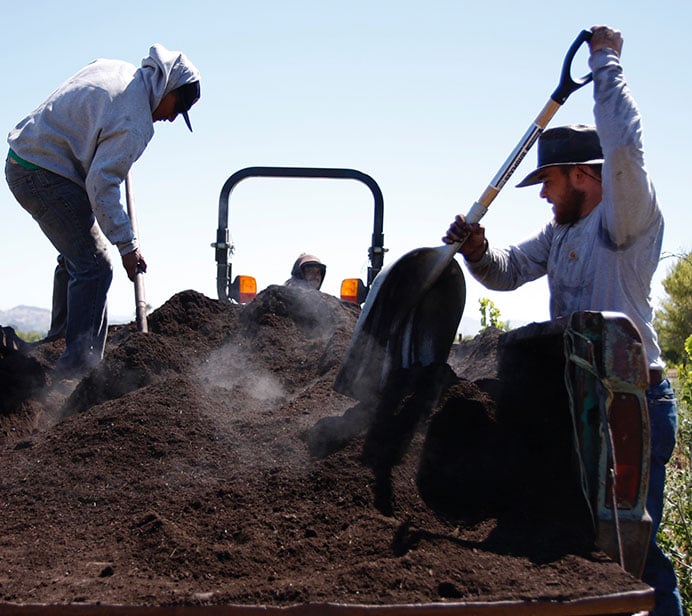
COMPOST & COMPOST TEA
We compost and reuse all digestible organic waste and materials from our winery including: 3,000 tons of grape pomace per year, prunings from our trees and vines, and chipped materials from the landscape. We turn this "waste stream" into nutritious food for our soils.
Some rougher compost is further digested with the aid of worms, then biologically proliferated in a forced aerobic tea brewer. This “compost tea” is introduced to vineyards through the drip irrigation system, thereby applying the broad-spectrum indigenous matter directly to our soil.
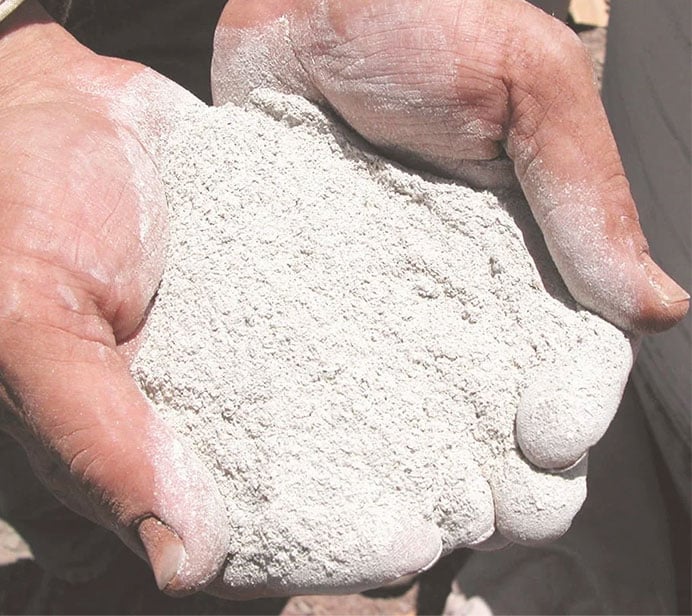
MINERALS
We grind our own volcanic rock, then spread the crushed cinder onto the soil. Having a wide spectrum of mineralogy, these cinders provide our vineyards with a complex array of nutrients and trace minerals. We take these extra steps to make sure our vines have all the necessary components to build fullness of character in our wine.
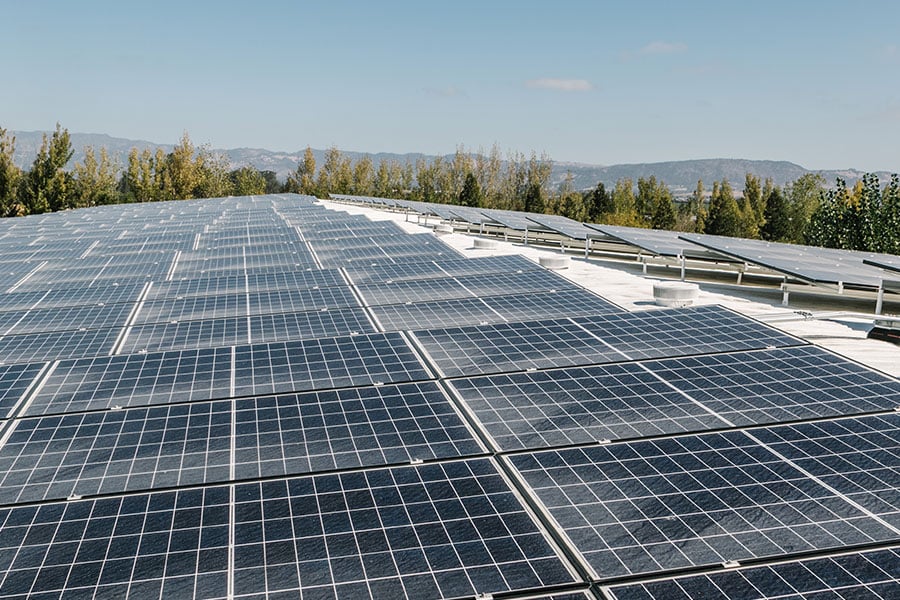
POWERED BY THE SUN
In 2005, we were one of the first wineries to fully adopt solar energy and in 2018 upgraded the original array with the latest technology, designed to offset 100% of our winery’s electrical consumption. Our goal was to be energy independent. Our commitment to sun power also spares the air 436 metric tons of CO2 annually; equivalent to removing over 1 million miles of driving each year.
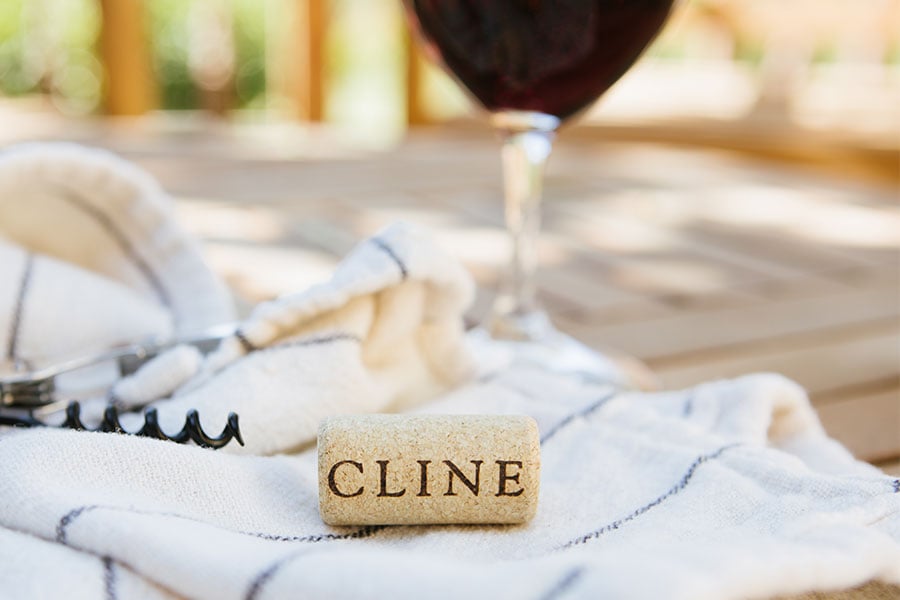
RECORK
As part of our commitment to sustainability, we partnered with ReCork to assist with public cork collection. ReCork is North America’s largest natural wine cork recycling program and uses wine corks to innovate and create natural, sustainable alternatives to petroleum-based foams and plastics. Corks are collected in our tasting room.

